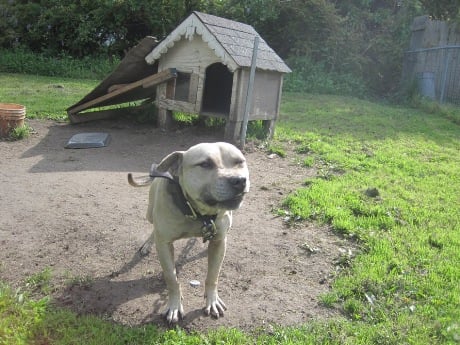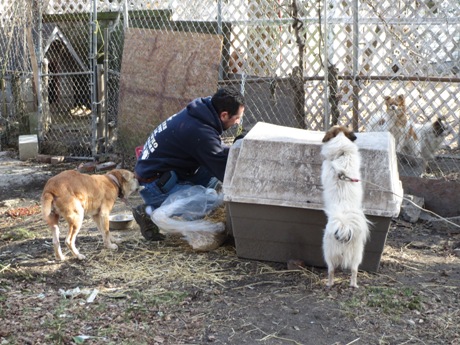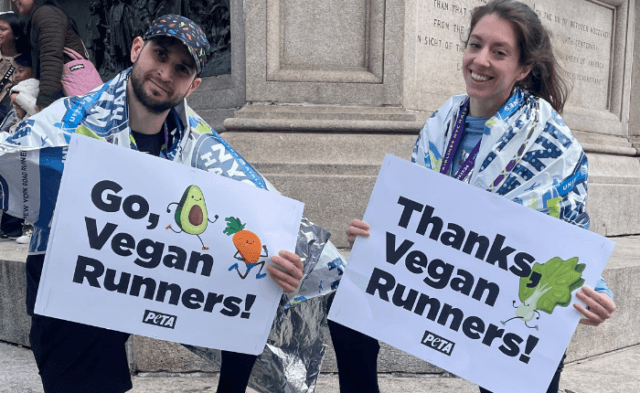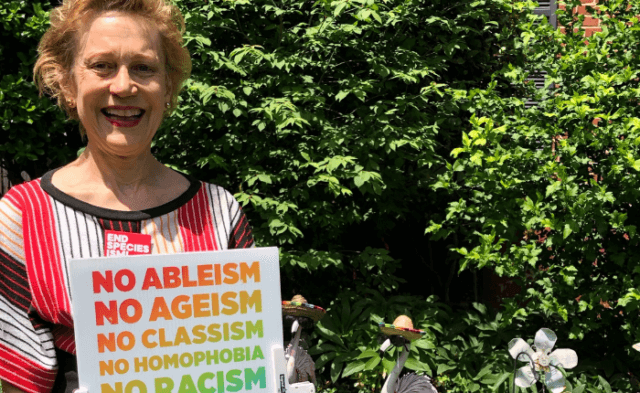This winter has been severe, bringing lots of snow and freezing temperatures to most of the central and eastern United States. What you probably will not hear about on the news, however, is the terrible plight of those animals who are forced to live outdoors—a great number of them dogs kept in tiny pens or chained to trees or stakes in the ground with little or no shelter from the cold and inadequate food and water to survive. Most of these dogs are treated like possessions and receive little to no attention from their owners.
Two years ago, I learned that someone is doing something to help improve the lives of these animals and change how people view and treat them. I accepted an invitation to visit PETA’s headquarters in Norfolk, Virginia, to learn about its doghouse delivery program and to experience PETA’s community-outreach efforts firsthand.
I accompanied PETA fieldworkers as they visited communities as far south as North Carolina. I never saw so many dogs in my life, mostly pit bulls, living in such terrible conditions. The doghouses, straw bedding, food, and treats that we brought for these dogs, along with some much-needed attention, made them so happy that it was difficult to leave them behind.
Since my first visit, I’ve come back several times during the winter to volunteer with this program. I’ve gotten to know some of the dogs and their owners, and I always look forward to seeing them again—and always hope that their lives have improved. I’ve also developed great respect and admiration for the PETA fieldworkers who do this work every day. Not only are they incredibly caring about these animals, they also have a special way of communicating with the owners, convincing them to have the animals spayed or neutered (PETA’s mobile clinics provide low-cost and even free services) and to provide them with better medical care and encouraging them to bring the animals inside or, in cases in which animals are in serious trouble, to relinquish them.
I’ve also witnessed how fieldworkers, in cases of willful neglect or abuse, partner with local law-enforcement officials to document evidence and successfully assist in prosecuting and bringing animal abusers to justice.
Over the last two years, I have witnessed even bigger successes. PETA has been able to influence local authorities in several communities to start talking about and actually pass anti-chaining ordinances. My experiences with PETA’s fieldworkers have been extremely rewarding. Every time I return home from a weekend of delivering doghouses, I hug my two adopted pit bulls, who are cozily lounging by the fireplace, and I’m glad that someone is out there right now working to make this a better world for all animals.
Written by Ricardo Ferreira
Ricardo lives in Virginia with his partner, Julie, and their two dogs. Both Ricardo and Julie are members of PETA’s Augustus Club and Vanguard Society. Ricardo has visited PETA’s Sam Simon Center multiple times to assist with fieldwork.






